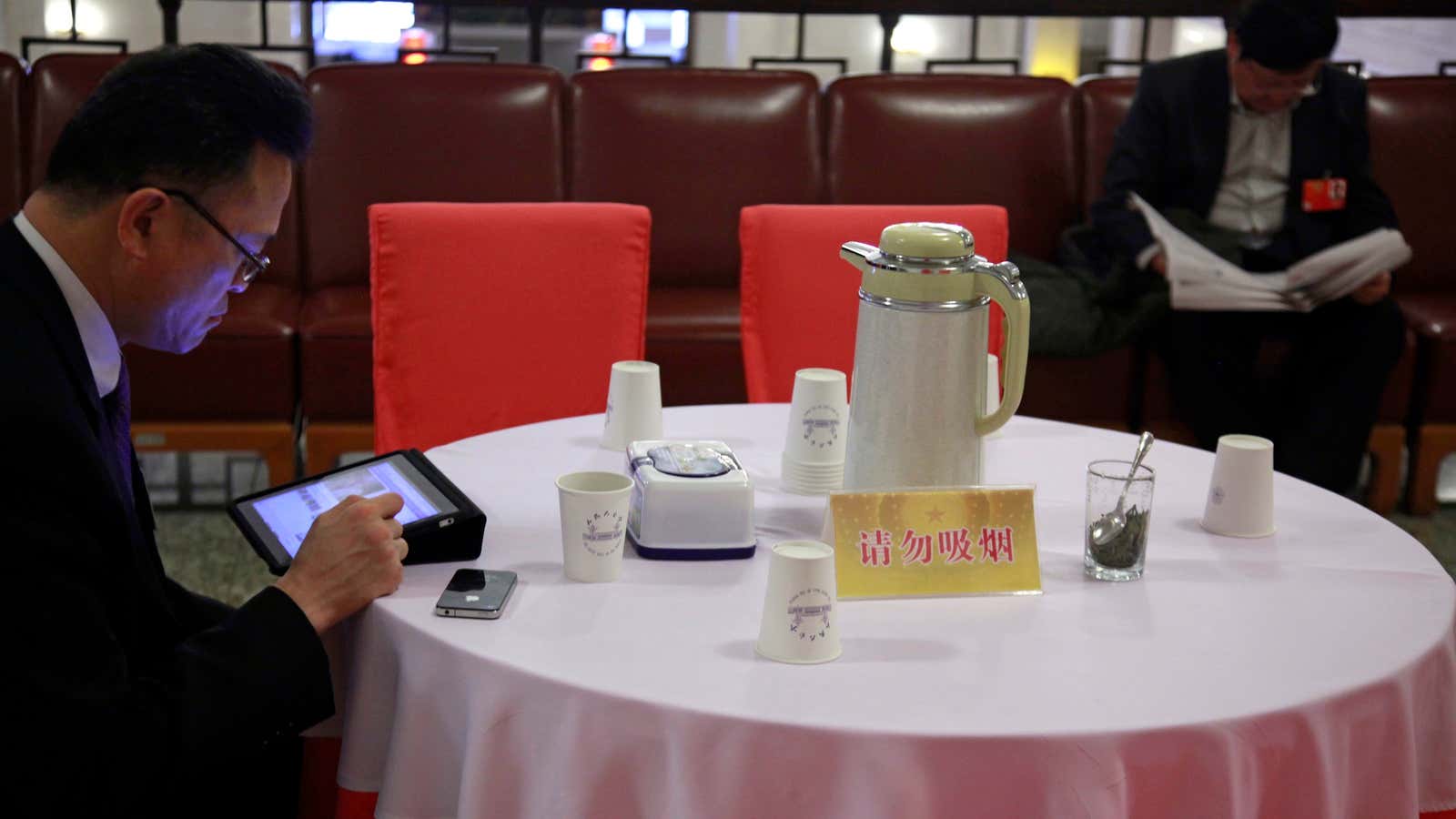More than two-thirds of apps that run on Chinese smartphones are tracking users’ private data, according to a new study by the Data Center of China Internet. (The study is in Chinese but is reprised here in English by Tech in Asia.) And 35% of apps go further by tracking user data that has no connection with the apps’ function, often not making users aware this was happening. The DCCI report said the review covered the top 1,400 apps in China.
Other research, including a 2010 Wall Street Journal investigation, has found that many iPhone and Android apps capture more personal data than most users realize. Nearly all Android apps are created by developers other than Google, which built the free Android operating system software used on smartphones.
But the latest Chinese study, released by an organization whose ties to the Chinese state are unclear, could be designed to ratchet up pressure on Android and Google – 98% of Chinese-made smartphones run on Android systems and Android has a 90% market share overall - as the government looks to promote domestic alternatives. The country’s ministry of finance recently complained about Android’s dominance of the smartphone market, doing so in a white paper that praised Google’s domestic competitors, such as Baidu and Huawei.
The DCCI describes itself on its website as a “consultancy.” No one picked up the phone when Quartz called for more details. But DCCI president Hu Yanping seems sympathetic to the Beijing government. He recently appeared in Chinese state-owned media to dismiss US reports of Chinese hacking as exaggerated.
Some experts have already raised the possibility that the Beijing government could be gearing up to unleash unfavorable regulations on Google or Android that will benefit Chinese companies. So while it is hard to tell what motivated the DCCI study, it would fit into that potential agenda rather well.
(We asked Google for comment, and will update when we hear back.)
Other statistics from the original Chinese-language study: 51% of Android apps are tracking users’ locations. Within that, 13.2% are doing so even though the app’s function has nothing to do with needing to know someone’s location. A further 4.3% of apps can make phone-calls independently when the app’s function would not suggest this was part of the service or relevant.
